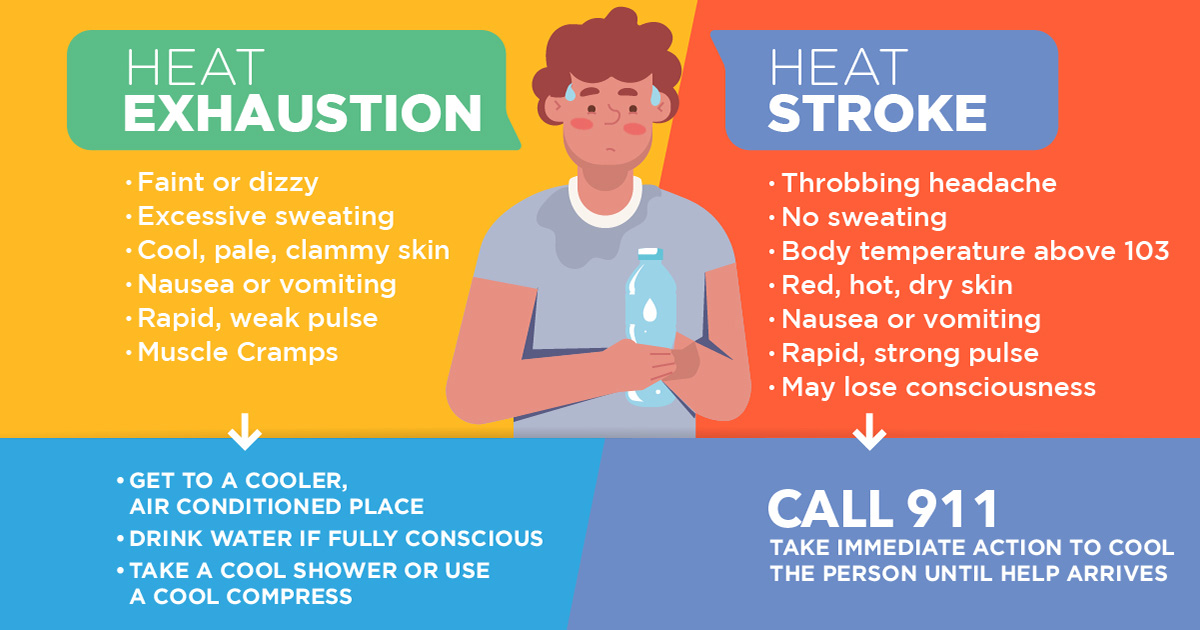Keeping Cool During Extreme Heat
Extreme heat can lead to serious illness and be life-threatening.
Our neighborhoods can expect hotter summers and more frequent and severe heat waves as climate change causes higher temperatures. Finding ways to stay cool and safe, both at home and outside, is more important than ever.
Who is most at risk?
Heat affects us all, but some of us are at greater risk. Different people react differently to heat based on their age, health, and living conditions (including housing type, experiencing homelessness, and living in social isolation). Most of us have at least one friend or family member who falls into one of the following categories:
- People without air conditioning. Many people may have an AC unit, but may be hesitant to turn it on due to energy costs.
- Older adults (65+) and children (under 5).
- People who are pregnant or nursing.
- People with pre-existing medical conditions, such as heart, lung, kidney, and mental health conditions.
- People on certain medications. Consult your doctor about the medications you are taking and extreme heat.
- Outdoor workers and
- People who primarily take public transit. Those who may be walking or waiting in line outside for transit, work, or essential services.
What Can You Do to Stay Cool?
Before a Hot Day
- Monitor local weather reports and look out for hot days. Be sure to look at the heat index, which measures how hot it feels based on temperature and humidity levels.
- Check in with neighbors. See if your neighbors are aware of upcoming weather and let them know that you are around to assist.
- If you do not have air conditioning, identify public cooling spaces to visit, or find family and friends with air conditioning whose homes you feel comfortable visiting.
- Call 311 to sign up for city alerts or to request information on resources and services available to support residents through an extreme heat event.
On a Hot Day
- Drink plenty of water, even if you don’t feel thirsty. Avoid alcohol, caffeine, and sugary beverages that can dehydrate you. Bring water with you when going out because public drinking fountains may be limited.
- Practice sun safety. Wear sunscreen, a wide-brimmed hat, sunglasses, and loose-fitting, light-colored clothing when you go outside.
- Avoid strenuous activity during the hottest parts of the day. If you must be outside, go out in the morning or the evening, take breaks, and stay out of direct sunlight. Look for shade such as trees and other shading structures.
- Turn on your air conditioner if you need it. Fans will not prevent heat-related illness when the temperature is above 95°F. If you are concerned about the cost of running your air conditioner, check if you are eligible to receive a discounted electricity rate from your electric utility and local Community Action Agency. Keep the heat out by closing windows and blinds during the day.
- Never leave children or pets in a car unattended. This includes when running out for curbside pickup or other quick errands. Even with the windows cracked open, interior temperatures can rise almost 20°F within 10 minutes.
- Be a good neighbor. Check on family, friends, and neighbors, especially the elderly, those who live alone, those with medical conditions, and those who need additional assistance.
Know the signs of heat-related illness
Call 911 in an emergency. If someone is showing signs of heatstroke, call 911 immediately. Signs of heatstroke include a body temperature over 103°F; hot, red, dry, or moist skin; a rapid and strong pulse; and possible unconsciousness. While waiting for help to arrive, move the person into a cool area, help cool them down with wet towels or a cool bath, and DO NOT give them fluids.
To learn more about the work MAPC is doing for Extreme Heat, click here.

